Tears, lost colleagues but a glimmer of hope - life on the NHS frontline at Doncaster Royal Infirmary
and live on Freeview channel 276
It was around two months ago – before Covid 19 transformed the life of critical care nurse Lee.
When the crisis first arose, Lee’s 16-year-old daughter was living with him and her mum, who is also a critical care nurse at Doncaster Royal Infirmary.
Advertisement
Hide AdAdvertisement
Hide AdBut the couple took an early decision to send her away to live with her grown-up older sister to reduce any chance of exposing her to the virus.
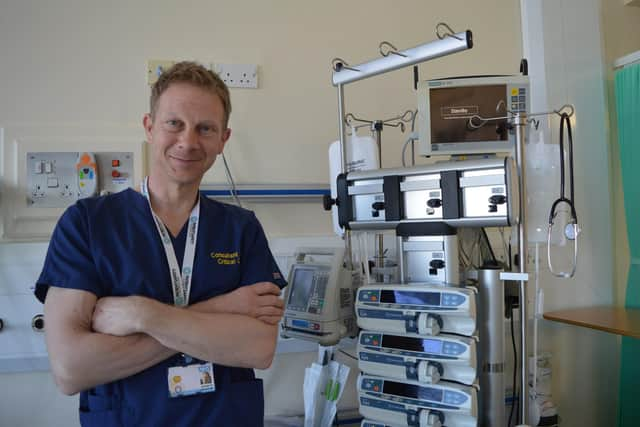

It has also meant the 49-year-old has been unable to visit his 18-month-old granddaughter, or his grown-up son.
They are not the only frontline nurses to do the same – and many are currently living in hospital accommodation at the DRI so that they do not pass anything on to vulnerable loved ones, during a period of which Lee says he has never seen the like of before. It has brought colleagues to tears, and seen valued colleagues lose their lives, but has finally started to see the number of patients on Doncaster’s critical care ward fall.
Lee is the lead nurse in critical care in the DRI, and one of many spending International Nurses Day last week on the NHS frontline in what he says is an unprecendented time in his 30 year career since the outbreak of the coronavirus.
Advertisement
Hide AdAdvertisement
Hide AdLee always wanted to work in a hospital. His sister worked in a pharmacy, and he decided he wanted to be a nurse aged 16. He has been working at the DRI since 2001. Although his training was across all aspects of nursing, it was critical care worked that fascinated him.
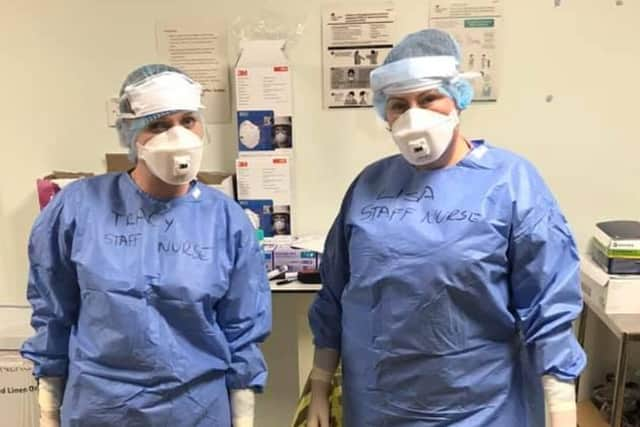

“I came to Doncaster in 2001, and I’ve been in the job here ever since,” he said.
“The last few weeks have been a challenge. In critical care, you are used to dealing with the sickest patients, on life support machines. There is a lot of tragedy, and complex treatments to deal with. We see a lot of death and have supported many families, but we also have the joy of seeing people get through their medical emergency, and get back to normal life. That is normal for us, and critical care nurses have done it for years. If someone asks you to do what you usually do, it’s not a big thing.
“The challenge of Covid has been that we were working for several weeks without a break to plan for the surge that we expected. We have had patients with Covid who have been quite sick at ward level, and at critical care level patients have been unbelievably sick, with a high rate of illness on a daily basis, but far more of the very sickest than we have had before.
Advertisement
Hide AdAdvertisement
Hide Ad“It has been strange to not have patients familes around. We have done compassion and support via Facebook and videolinks.”
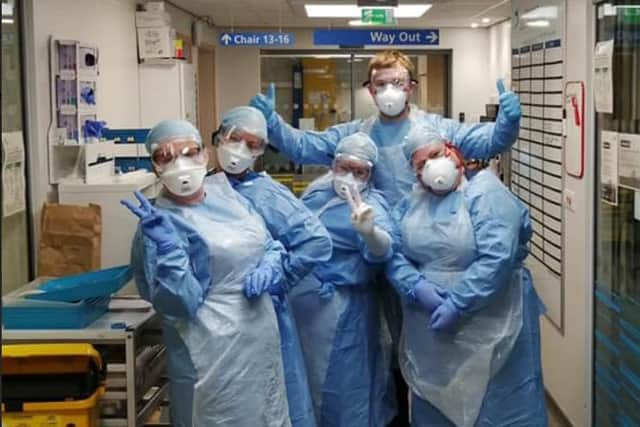

There has been no planned surgery at the hospitals, and some other services have not been running. That has meant some nurses who had not done critical care in the past being drafted into that area of work, doubling the numbers working in that area. Lee says it has been tough for those nurses new to critical care.
He said: “The clinical demands have been extraordinary.
“That has meant we have had staff move from other wards who have not dealt with critical care before. They have been very anxious and worried and aware of the threat of covid. We went into this wondering how infectious it was. Those of us who have always been on critcal care are used to that, but there are many who had not had that sort of experience. That has meant a lot of tears and anxiety about if they were going to catch it or take it home to their family.”
Illness to staff has also affected the nurses – both from the point of view of nurses being poorly themselves, but also through them finding themselves looking after seriously ill colleagues.
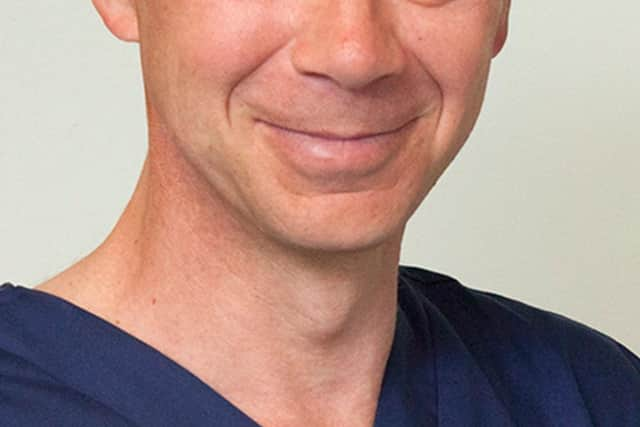

Advertisement
Hide AdAdvertisement
Hide AdBoth DRI plaster technician Kevin Smith, and consultant geriatrician Medhat Atalla died after treatment at Doncaster Royal Infirmary for Covid 19.
“We have had staff who have died with us,” said Lee. “These have been people we knew very well, and worked with on a daily basis.”
But recently, they have started see a change. They have seen the number of patients admitted start to fall after weeks of lockdown and social building.
“We are coming out of it a bit and starting to look round and think for the first time ‘has that really been happening?’ he said. “The number of patients coming in has reduced. A lot have recovered, but a lot have died. There has been more death than a lot of us have seen in our careers in such a short period of time.”
Advertisement
Hide AdAdvertisement
Hide Ad“This has not been like anything I’ve ever seen, and I have seen very demanding years. I’ve seen meningitis outbreaks; and the ‘flu of 2009-10 was a worrying time – we were down to our last ventilator at one point. But Covid has been different. We felt we could do something with ‘flu – there was an antiviral for that, and vaccines were there. This time there’s no vaccine or treatment. There are drugs trials going on, but we don’t know if we’re giving people drugs or placebo. All we can do is support organs, deal with blood clots, and support the body. We are all hoping they find a vaccine and a treatment.”
Lee said the nurses have been very aware of the support that they have received from the public. He has seen a vast flow of donations from the public, from protective equipment people have made, to food. The stream of donated food has ranged from cakes and sweets to pizzas and curries, and tea bags.
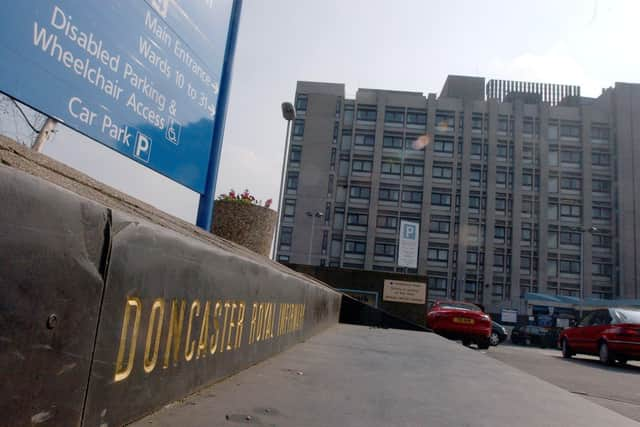

There has also been the weekly applause every Thursday evening. Lee first heard it while tending his garden to wind down after a shift. He said: “You go out to clear you head, and then I just heard the clapping. It is really emotional for us to hear that applause. The support has been amazing.”
Having been unable to see his children and grandchildren for so long, Lee is looking forward to when the crisis ends, whenever that may be.
Advertisement
Hide AdAdvertisement
Hide Ad“Both me and my wife work in critical care. We would not be where we are unless we were extremely resilient. We’ve got three children. Our son lives in Sheffield, our oldest daughter is in her 20s, and we’ve not seen our granddaughter. With our 16 year old daughter, we said ‘we’re going to be working all the time’ and sent her to live with her sister for now. We can catch up two metres away and make videocalls, but we feel like we’ve been working solidly.
“The idea of things getting back to normal is keeping us going.”